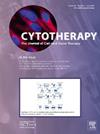Characterization of engineered CAR-Treg cells to induce immune tolerance in liver transplanted patients
IF 3.7
3区 医学
Q2 BIOTECHNOLOGY & APPLIED MICROBIOLOGY
引用次数: 0
Abstract
Background & Aim
Regulatory T (Treg) cells play a critical role in maintaining immune tolerance and controlling inflammatory responses. Adoptive cell therapy with Tregs has been an exciting prospect for the modulation of immune responses in the clinic, indicating the feasibility and safety of this approach in multiple autoimmune and transplantation settings. However, the implementation of engineering tools to confer antigen-specificity and phenotypic stability is expected to enhance the effectiveness observed from previous Treg products.
Methodology
LIBERATE is a first-in-human Phase I/IIa clinical trial designed to evaluate the safety and activity of autologous CAR-Tregs in promoting liver transplantation tolerance in HLA-A2-negative patients who have received a graft from an HLA-A2-positive donor. A proprietary GMP manufacturing process has been developed to engineer recipient-derived QEL-001 cell products that express an anti-HLA-A2 targeted CAR, with a FOXP3 phenotype lock, and a safety switch. An extensive characterization of QEL-001 CAR-Treg products has demonstrated the maintenance of phenotypic and functional characteristics of unmodified Tregs.
Results
A safety cohort consisting of three patients found QEL-001 to be well tolerated within the protocol-defined dose range, with no serious adverse events or dose-limiting toxicities. No treatment related adverse events were reported during the 4-week post-dose follow-up. Analysis of blood samples by FACS and scRNAseq showed persistence of CAR-Tregs in circulation for up to 12 months post-infusion and maintenance of canonical markers of stable and effective Tregs. Liver biopsies collected post-infusion demonstrated phenotypic stability and evidence of graft trafficking, leading to substantial enrichment of CAR-Tregs in the liver compared to the periphery.
An expansion cohort is currently being conducted with the addition of lymphodepletion by low-dose rATG previous to QEL-001 infusion. Active ATG was cleared from circulation prior cell infusion and mediated a significant reduction in T-cell frequencies. QEL-001 CAR-Treg engraftment levels in circulation was improved compared to the safety cohort who did not receive rATG conditioning, and the Treg/Teff ratio increased favoring immunoregulation.
Conclusion
This study provides pioneering data to evaluate the phenotype and homeostasis of engineered Tregs in the clinic, supporting further investigation of these therapies in a broad range of inflammatory, autoimmune and transplantation applications.
工程化CAR-Treg细胞诱导肝移植患者免疫耐受的特性
背景,调节性T (Treg)细胞在维持免疫耐受和控制炎症反应中起关键作用。Tregs过继细胞治疗在临床免疫应答调节方面具有令人兴奋的前景,表明该方法在多种自身免疫和移植环境中的可行性和安全性。然而,工程工具的实施赋予抗原特异性和表型稳定性有望提高从以前的Treg产品观察到的有效性。yliberate是一项首次人体I/IIa期临床试验,旨在评估自体CAR-Tregs在促进hla - a2阳性供体移植的hla - a2阴性患者肝移植耐受方面的安全性和活性。一种专有的GMP制造工艺已经开发出来,用于设计受体衍生的QEL-001细胞产品,该产品表达抗hla - a2靶向CAR,具有FOXP3表型锁定和安全开关。对QEL-001 CAR-Treg产品的广泛表征证明了未修饰treg的表型和功能特征的维持。结果一项由3名患者组成的安全性队列研究发现,QEL-001在方案定义的剂量范围内耐受性良好,无严重不良事件或剂量限制性毒性。在给药后4周的随访中,未报告与治疗相关的不良事件。通过FACS和scRNAseq对血液样本进行分析显示,car - treg在输注后循环中持续存在长达12个月,并维持稳定有效的treg标准标记。输注后收集的肝脏活检显示出表型稳定性和移植物运输的证据,导致肝脏中car - treg比周围大量富集。目前正在进行一项扩展队列研究,在QEL-001输注之前,通过低剂量rATG增加淋巴细胞清除。在细胞输注之前,活性ATG从循环中被清除,并介导t细胞频率的显著降低。与未接受rATG调节的安全队列相比,QEL-001 CAR-Treg在循环中的植入水平得到改善,Treg/Teff比率增加,有利于免疫调节。本研究为临床评估工程Tregs的表型和稳态提供了开创性的数据,支持进一步研究这些疗法在炎症、自身免疫和移植方面的广泛应用。
本文章由计算机程序翻译,如有差异,请以英文原文为准。
求助全文
约1分钟内获得全文
求助全文
来源期刊

Cytotherapy
医学-生物工程与应用微生物
CiteScore
6.30
自引率
4.40%
发文量
683
审稿时长
49 days
期刊介绍:
The journal brings readers the latest developments in the fast moving field of cellular therapy in man. This includes cell therapy for cancer, immune disorders, inherited diseases, tissue repair and regenerative medicine. The journal covers the science, translational development and treatment with variety of cell types including hematopoietic stem cells, immune cells (dendritic cells, NK, cells, T cells, antigen presenting cells) mesenchymal stromal cells, adipose cells, nerve, muscle, vascular and endothelial cells, and induced pluripotential stem cells. We also welcome manuscripts on subcellular derivatives such as exosomes. A specific focus is on translational research that brings cell therapy to the clinic. Cytotherapy publishes original papers, reviews, position papers editorials, commentaries and letters to the editor. We welcome "Protocols in Cytotherapy" bringing standard operating procedure for production specific cell types for clinical use within the reach of the readership.
 求助内容:
求助内容: 应助结果提醒方式:
应助结果提醒方式:


